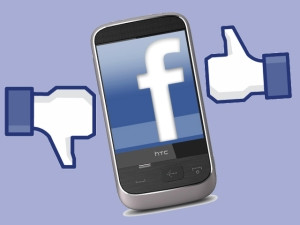
While the latest data from social media monitoring firm SocialBakers shows 967 220 South African users have not logged onto Facebook in the last six months - a decline of 17.7% - local researchers say this is inaccurate.
World Wide Worx MD Arthur Goldstuck says while there is a decline in Web-based users, the figures do not reflect mobile Facebook users.
"SocialBakers uses Facebook Ad Planner to compile their data and Ad Planner does not pick up the location of mobile sign-ons. This is thus not applicable in Africa, where most people are accessing Facebook from their mobile phones."
He says that when taking mobile users into account, the actual figure of Facebook users in SA would be close to eight million. "In SA, Facebook users are actually growing. There has been a rapid growth in the mobile user market, especially with more people downloading the app onto their phones."
The decline is also a result of Facebook cleaning out its database, says Goldstuck. "It's getting rid of fake and ghost users." He says there are also people who forget their sign-ins and then simply never return to Facebook.
At the beginning of the year, independent technology analyst Benedict Evans, of Enders Analysis, compiled a detailed breakdown of Facebook's mobile user base, for the first time. According to this, 604 million of Facebook's 1.07 billion users access the social network via mobile, with 470 million of those doing so via a smartphone application.
Drop-off effect
However, some see the decline in local users as genuine, and note the downward trend has been ongoing for some time. By last November, 352 180 South African users had stopped using the popular social network, according to the latest data.
Mike Wronski, CEO of social media business intelligence firm Fuseware, notes that since then, the SocialBakers data for SA indicates a predominantly downward trend. "As more people leave the network, its value decreases exponentially, according to Metcalfe's law, meaning the downward trend may actually accelerate."
Wronski says there are four main reasons why Facebook is losing users. "South African and global youth are shifting towards platforms that offer a simpler real-time interface, with Whatsapp and 2go leading the pack locally, alongside Twitter."
He adds that the social network has lost its novelty, and the injection of brands and advertising content into news feeds has seen strong negative feedback. While mobile usage is picking up, he says it comes with its own set of problems.
"Facebook's mobile experience on smartphones has had glitches and performance issues and, as more people use social media on their smartphones, they are opting for apps with a better user experience," says Wronski.
Global range
Taking a look at how this compares to the rest of the world, Wronski says it's important to understand that emerging markets consume media in a different manner to First World markets, with a heavy focus on mobile consumption.
There is no resounding correlation between South African user trends and the rest of the world, explains Wronski. "India and Brazil are both on a steady upward trend, while the UK has been decreasing its Facebook usage for some time now. The US market has also remained stagnant for some time, but this is due to Facebook reaching saturation point so further growth is significantly slower.
"The social networks of choice in emerging markets are often tied to the cultural and technological nuances in those areas. SA has a propensity for real-time chat, which is why Whatsapp and 2go have had remarkable success in the region alongside Mxit. However, other emerging markets such as India and Brazil are on a steady upward trend with regards to Facebook adoption," he says.
Goldstuck adds that this makes the user measurement by Facebook even more inaccurate, as it doesn't integrate IP address and, therefore, doesn't represent the full picture. "This means that other African markets like Kenya and Nigeria are severely underreported."
Goldstuck says advertisers need to put pressure on Facebook to offer more transparent information on its users. "Facebook Home might give it the opportunity to sharpen its tools on the mobile side as well."
Wronski believes that with the Facebook's constant innovation like graph search, enhanced timelines, video ads and the upcoming Facebook phone, it makes it difficult to predict in which direction the market will move.
"Advertisers are definitely excited at the prospect of engaging with existing audiences across a wider diversity of rich media, such as mobile video ads on the Facebook phone. Whether consumers will adopt the Facebook phone in large numbers, however, remains to be seen," he concludes.
Share